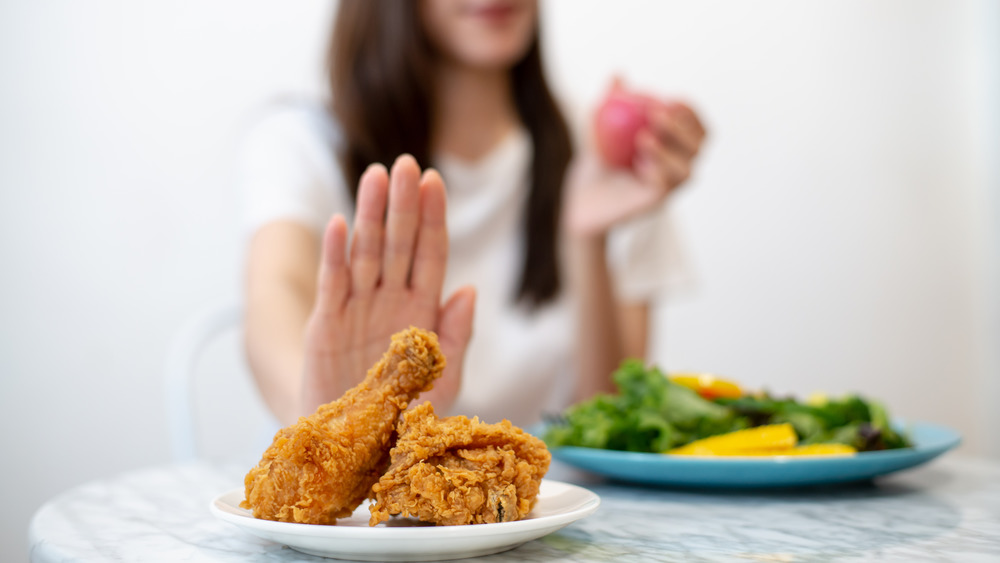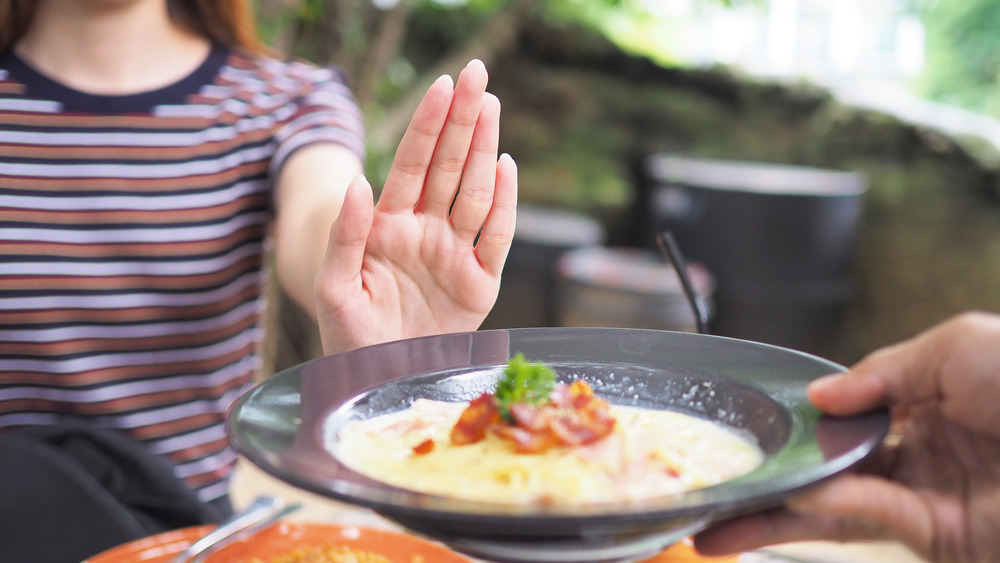Myths That Trick You To Avoid Food When You Shouldn't
If there's one thing we know about science, particularly as it relates to telling us what we should and shouldn't eat, it's that it's remarkably inconsistent. One day there's a study telling us we should all be eating dark chocolate, or hummus, or even some unholy combination of the two, and the next day, new study – oops, no, all that stuff's bound to kill you. Is it any wonder we're often inclined to throw our hands in the air like we just don't care? What's the point? Might as well just eat a whole box of doughnuts followed by a stuffed crust pizza.
While Jamie Hickey, NASM, FMS certified trainer, and ISSA certified nutritionist, would not endorse such a junk-food diet, he does share our frustration at inaccurate yet persistent disinformation telling us to stay away from foods that we'd formerly been told were not only okay but downright healthy. The founder of Truism Fitness told Mashed, "The worst myth I hear is that you shouldn't eat fats when you're trying to lose weight." Hickey explains that there is a big difference between unhealthy fats like the kind we get from doughnuts and pizza and the healthy kind found in foods such as nuts, fish, and avocados. Hickey says "healthy fats are needed to insulate your body, protect your internal organs, and balance your metabolism," and advises "you should never do a diet that tells you to stay away from fats or any major food group."
It's not just fat that's unfairly demonized
Hickey says that gluten also gets an undeserved bad rap as being a culprit for unwanted weight gain. He acknowledges that "if you have celiac disease or are gluten-intolerant you will experience gastrointestinal problems like water retention and bloating" and says that these symptoms "may result in you feeling heavier or see the pounds on the scale increase," but explains that this isn't due to the gluten itself causing your body to store excess fat.
He's also not a fan of diets that try to ban all carbs. He says that while "a lot of people think to increase their protein consumption they need to decrease plant-based foods," it really isn't necessary or helpful to eliminate vegetables and greens in order to build muscle. Hickey points out that chickpeas, lentils, peanuts, and tofu are all types of plant-based foods that are high in protein, and advises that eating such foods "will add diversity which will increase your results rather [than] eating the same nutrient profile all the time."

